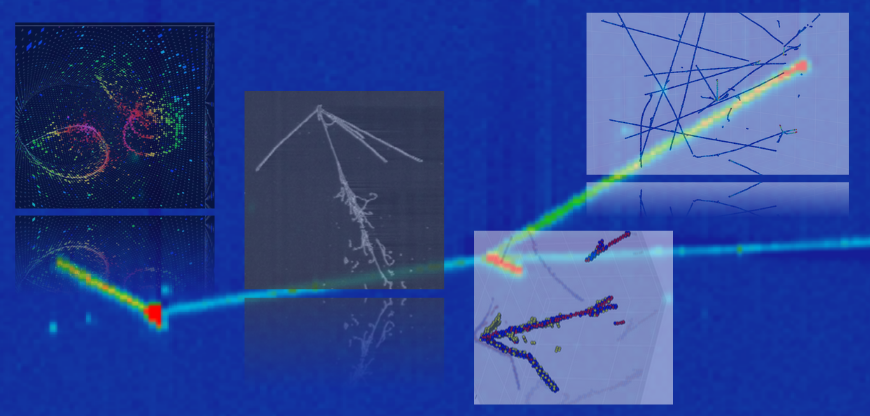Noble element time projection chambers (TPCs) have enabled searches for neutrino physics both within and beyond the Standard Model, but these rare event searches are limited by electric field distortions on event position reconstruction. Traditional data-driven field distortion corrections lack smoothness and differentiability, require extensive calibration data, and often do not follow...
Event reconstruction in large liquid scintillator neutrino detectors, such as SNO+, rely on hit times from large numbers of photomultiplier tubes (PMTs). Standard methods of PMT timing calibrations involve dedicated hardware with deployed or in situ light sources. A calibration using in situ radioactive backgrounds present in regular physics data would allow vastly more frequent calibrations...
Next-generation monolithic Water Cherenkov detectors aim to probe fundamental questions in neutrino physics. These measurements demand unprecedented precision in detector calibration and event reconstruction, pushing beyond the capabilities of traditional techniques. We present a novel framework for differentiable simulation of Water Cherenkov detectors that enables end-to-end optimization...
Liquid argon time projection chambers (LArTPCs) are highly attractive for particle detection because of their tracking resolution and calorimetric reconstruction capabilities. Developing high-quality simulators for such detectors is very challenging because conventional approaches to describe different detector parameters or processes ignore their entanglement (ie, calibrations are done one at...
Missing correlations and potential biases in detector calibrations are one major challenge mitigating data—simulation differences. To address this, we propose to use gradients, enabled by differentiable simulation, for efficient and effective optimization of the detector physics parameters. We developed an auto-differentiation enabled simulation of a liquid argon time projection chamber using...

